Ticking time bomb: The water crisis which threatens chances for peace in the Middle East
Climate change and crumbling infrastructure are causing water shortages in Gaza, which could soon make the enclave uninhabitable, Bel Trew reports in the fifth part of her series, Water Wars

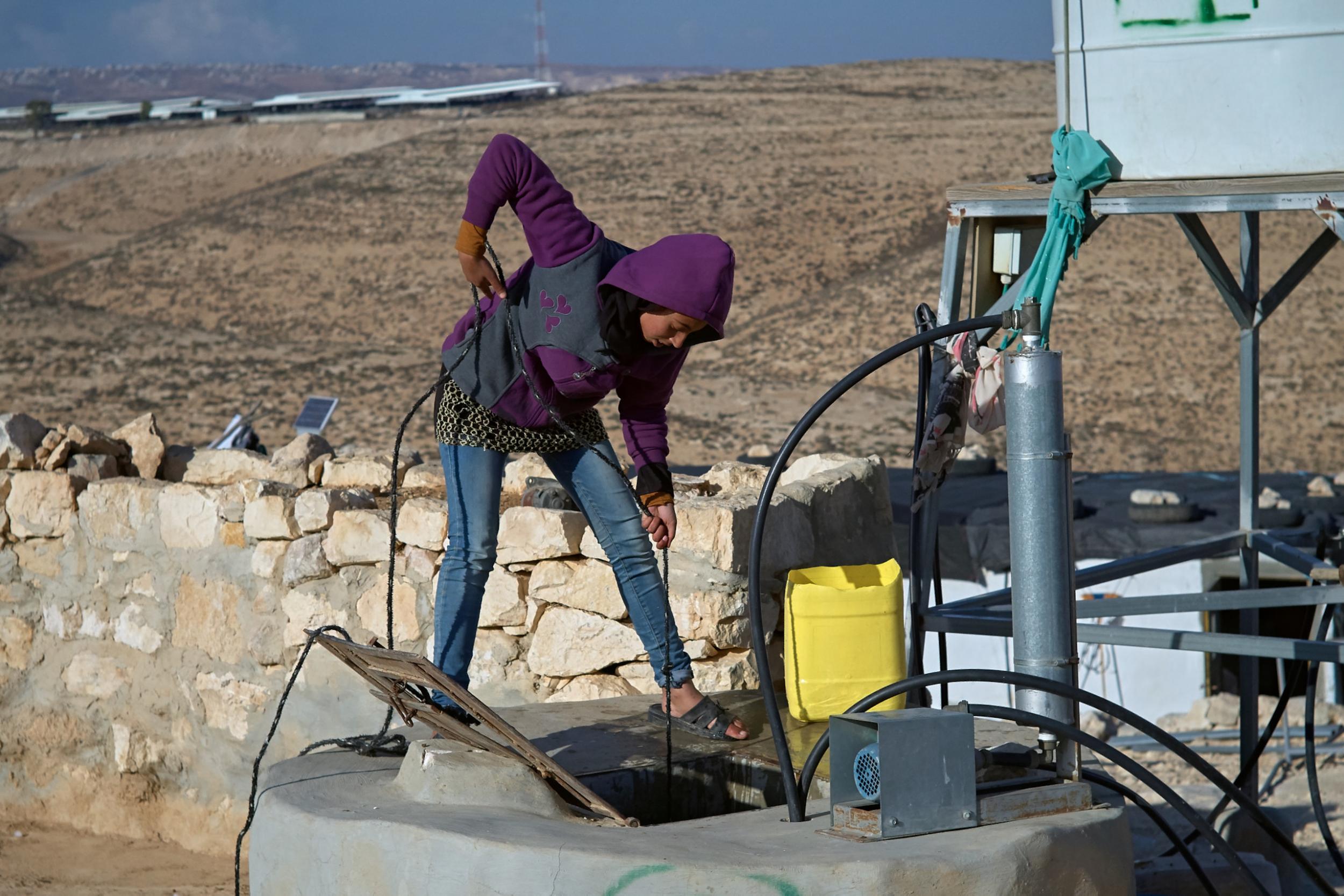
She had no idea that a quick trip to the beach, brief respite from the intensity of the Gaza summer, would end at the morgue.
Her children, irritated by the thickening heat, had been playing up all day and Noha Sais, 27, a mother-of-five, had lost her patience.
Over the last two summers, Gazans have only had just over four hours of electricity a day to power fans and cut through the punishing 40-degree heat.
Trapped in the tiny enclave, which is run by militant group Hamas and under a crippling Israeli and Egypt blockade, it felt like there was nothing else for the family to do but go to the polluted seaside.
That evening, in the summer of 2017, every one of Noha’s children fell suddenly sick, uncontrollably vomiting and were soon hospitalised. Gaza’s filthy Mediterranean waters had poisoned them.
The youngest, Mohamed, normally a healthy and boisterous five-year-old, contracted an unknown virus from the sea, which took over his body and brain. Three days after the trip, he slipped into coma. A week after that he died.
“The doctors said the source of the infection was a germ that came from the polluted seawater, but they couldn’t work out exactly what it was,” his mother says, her eyes fixed on a space on the floor.
“They just said to me even if my son recovered, he would never be the same – he would be a vegetable.”
According to the World Health Organisation (WHO), Gaza lacks nearly half its list of essential drugs and, with only rudimentary equipment available in the hospitals, medics were unable to handle such a complicated case.
At the time, the border crossings with Israel and Egypt were closed, and so terrified requests from the family to leave the 25-mile-long strip were ignored.
“The infection took over his brain, until he lost control of everything. It kept consuming him bit by bit,” she adds, her voice faltering.
“Hamoud was always the brightest light, the one everyone loved,” she says, using a pet name for her son. “I still don’t understand it. I lost my only son because we went to the beach?”
The family claimed there were five similar cases of poisoning at their local hospital in central Gaza, two of whom also died. Gaza health ministry officials told The Independent they lacked the equipment and facilities to check the cause of the illnesses.
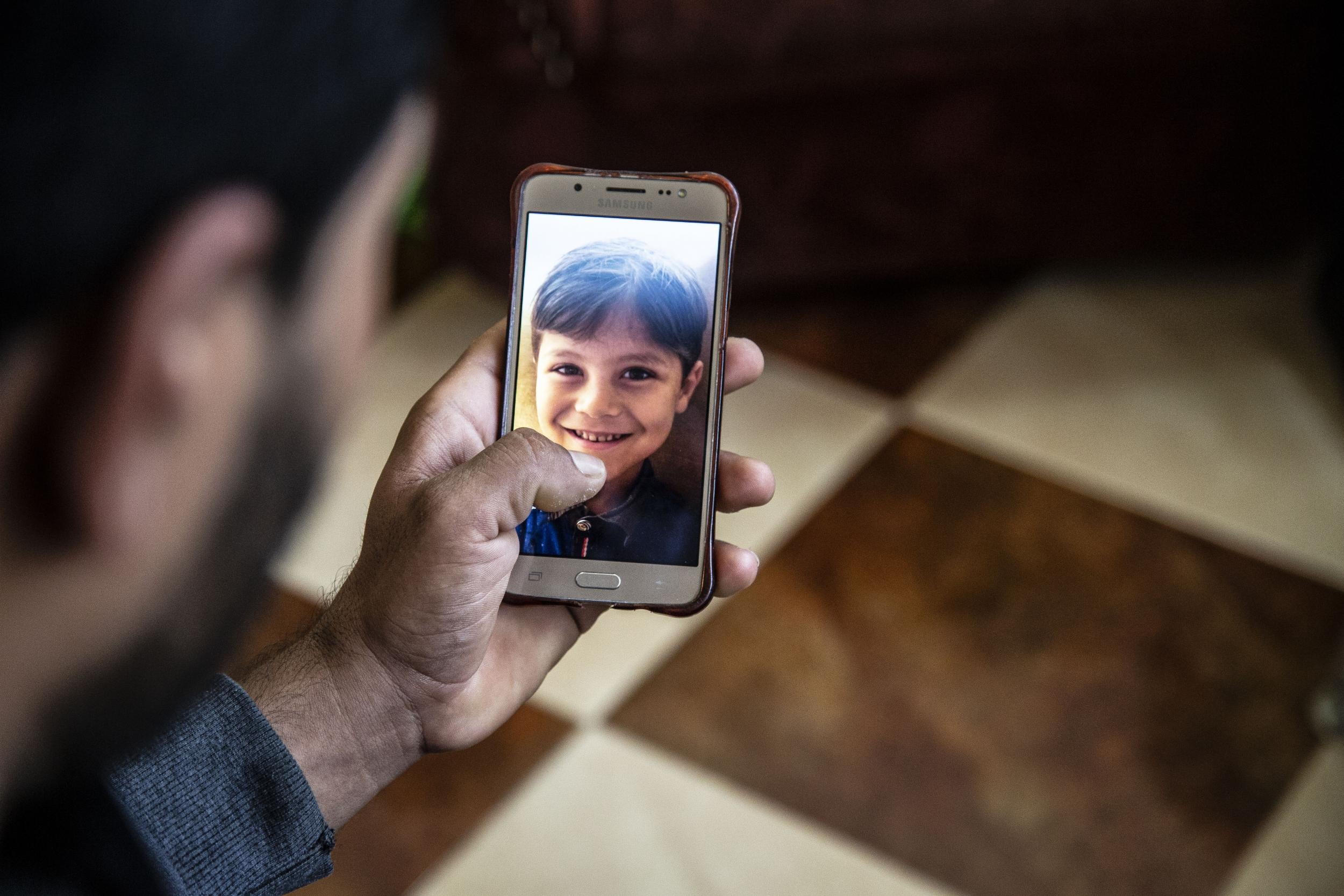
But Mohamed’s death is a stark warning of a devastating manmade catastrophe in Gaza that if it is not resolved soon will be irreversible.
The United Nations and Palestinian officials have said that if the sewage and water crisis is not fixed, the enclave will be uninhabitable by next year.
A staggering 97 per cent of Gaza’s groundwater water is currently undrinkable, due to the chronic overpumping of its only natural water resource: the coastal aquifer. If the aquifer is not allowed to recharge it is predicted to collapse altogether next year, leaving Gaza without any natural water sources at all.
Meanwhile, over 130,000 cubic metres of sewage is pumped into the sea every day, as Gaza does not have the capacity to treat it. Chronic electricity cuts caused in part by the Israeli blockade and by punishing restrictions first imposed in 2017 by the West Bank-based Palestinian Authority, have seen waste water plants grind to a halt.
That pollution is seeping back into the aquifer, into the land and the sea: three-quarters of the beaches, like the one Hamoud visited, are polluted.
WHO officials told The Independent that even just a single case of cholera could lead to an epidemic because they would be unable to contain it. The pollution is also encroaching up the coast to Israel, contaminating Israeli groundwater and leading to the intermittent closure of the Ashkelon desalination plant.
Without a natural source of clean water and corralled within just 25 miles of land, the only solution for Gaza’s two million population will be to get out. International rights groups fear it will spark a security crisis never seen before in Gaza and Israel at a time when both sides are already teetering on the brink of another war.
“People will explode, the situation is completely untenable. And from the perspective of Israel this will only lead to a greater security threat,” says Nada Majdalani, Palestine director of Eco Peace, an Israel, Palestine and Jordan-based organisation that argues the environment could be a linchpin for peace in the Middle East.
“If the number one goal of Israel is to keep their citizens safe and secure, then they won’t be safe with the humanitarian crisis in Gaza. The damage has already reached Israeli shores,” she adds.
A separate and different manmade water crisis is also bubbling up in the West Bank, where in some areas Palestinians have access to less than a sixth of the UN recommended daily water allowance of 100 litres a day.
Rights groups say 25-year-old, out-of-date water agreements with Israel effectively sees it hinder the building of Palestinian water infrastructure while siphoning off water resources to its own citizens, who enjoy in some settlements in the West Bank four times the amount of water Palestinians do.
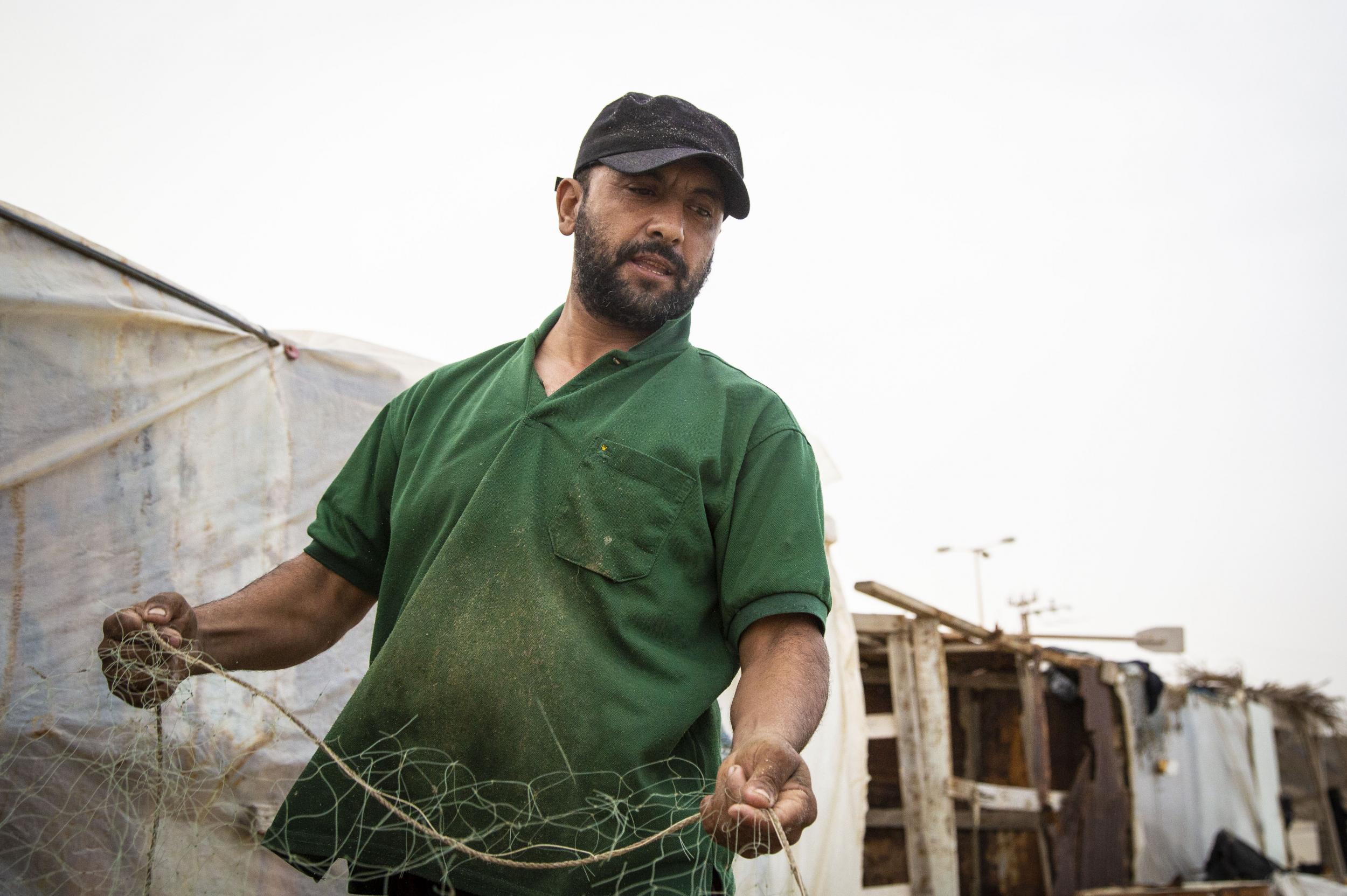
Compounding the problem is the disastrously leaky water infrastructure, which the Palestinians have yet to fix. Climate change, and five years of drought, has only piled more pressure on dwindling resources, bringing the crisis to a head now.
Palestinians argue that they are not just facing an immediate national security threat from both water crises, but the shortages have a more fundamental impact on the longterm future of the region: the very idea of a Palestinian state.
The international community has long relied on the hope that a two-state solution will end the 70-year-old Israeli-Palestinian conflict and bring peace to the Middle East.
The United States is due this year to deliver a peace agreement, dubbed by US president Donald Trump the “deal of the century”, but the Palestinians argue water conflict will undermine that.
“Water is the very base of national security. And so if we don’t have water security, if we do not have control over our water resources, we don’t have any hope in the future,” Mazen Ghoneim, chairman of the Palestinian Water Authority, tells The Independent from Ramallah.
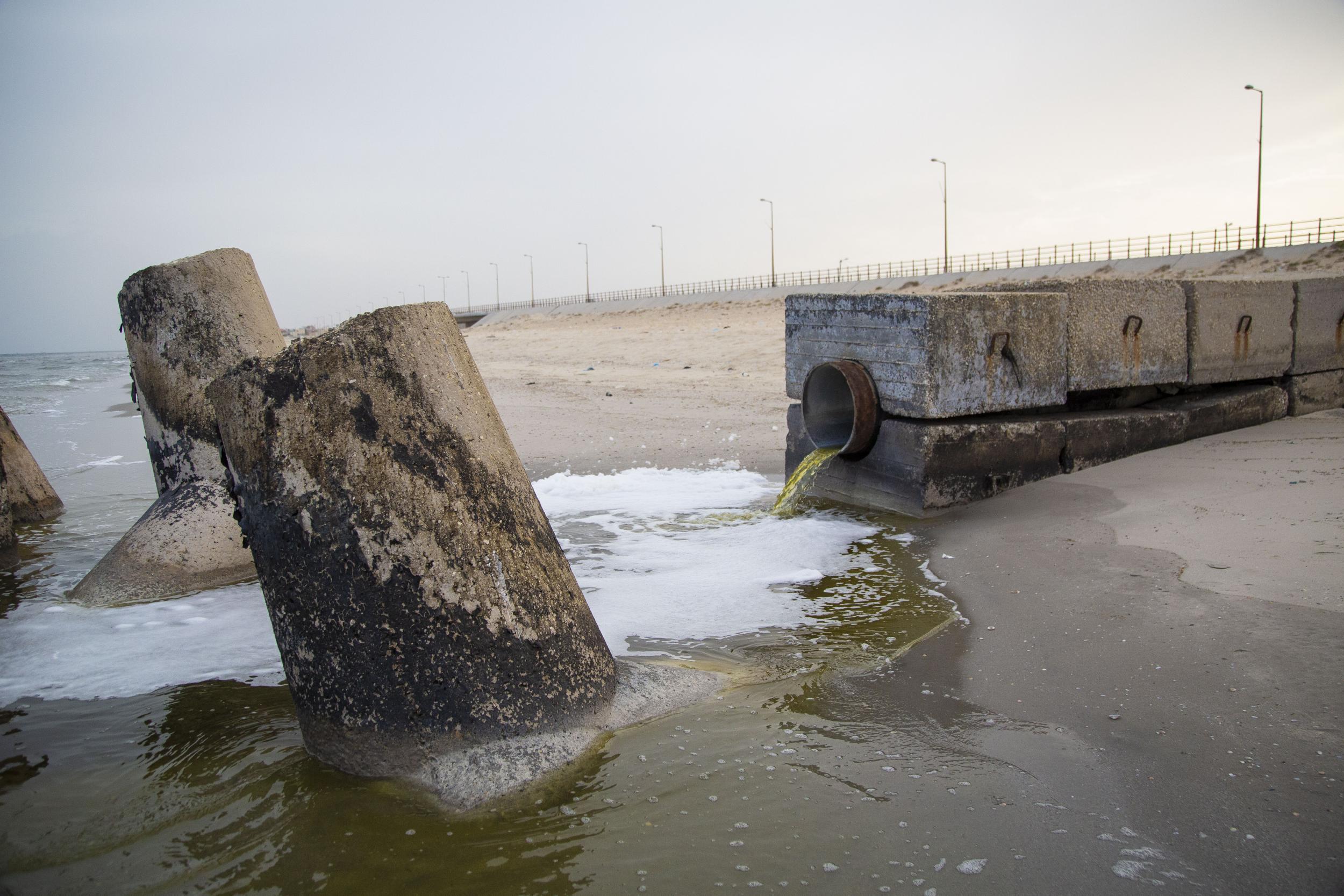
While land, borders and even the issue of refugees could be negotiated, access to water cannot.
“We can’t continue to establish our institutions and our state in general. The future of the state depends directly on the water security,” he adds.
The Israelis defend the water arrangements that govern the West Bank, arguing they are more than fulfilling what was agreed by both sides in 1995, because they sell additional water to the Palestinians. They say they cannot be blamed for the Gaza water crisis since they pulled out of the enclave in 2005.
“If the Palestinians did only two things, recycle their sewage and fix their infrastructure, they would have more water per capita then Israel even without desalination. It is simply lack of doing it,” says Schor Uri, spokesman for the Israeli Water Authority.
“Israel gives more than double the amount of water they are obliged to. But today we are enlarging our infrastructure in order to bring to the West Bank as much as water as they want,” he adds.
He concluded by saying the Palestinians were using the water crisis “as a political weapon”.
Back in Gaza, along a central beach, putrid streams of water from a sewage pipe draw yellow-tinted frills of foam along the seashore. In the first light of day, two fishermen wade knee deep beside it gathering crabs, ignoring the soupy poison they are working in.
Up until a decade ago the Gaza Valley, famed for its wildlife, was a popular weekend spot for families. Like most of Gaza, fishing and farming were the two main sources of income.
Now a broken sewage plant belches out toxic gases, choking the air. Tendrils of canals, once fish-filled and fresh, ferry raw sewage to the sea.
Two guards at the sewage plant tell The Independent they have both been hospitalised due to the fumes from the plant. They say it broke down a few years ago after it stopped getting a steady flow of electricity due to the cuts imposed by the Palestinian Authority, which hopes to pile economic pressure on their rivals Hamas, the militant group that runs Gaza, so that it relinquishes its grip over the strip.
The Gaza authorities say they are also not able to get hold of spare parts to fix the various plants, as Israel deems many of the necessary items “dual use”, alleging they could be used by Gaza’s numerous armed factions to build weapons, and so will not let them in.
The future of the state depends directly on the water security
And so the Gaza Valley has become a dumping ground for waste, which pools by the shore, before being dispersed into the sea.
At the beach, fisherman Mohamed Abu Mehadi says his earnings have plunged to a quarter of what they were in 2017, because, he says, pollution has killed off the fish. He cannot afford a boat to go out further to sea. Even then, Israel has imposed fishing zones of just six to nine nautical miles, limiting what fishermen can do.
Abu Mehadi, 23, says several of his children have been hospitalised over the last few years from dirty water and the fumes from the sewage plant.
“Anyone who comes to the beach ends up in hospital. We risk everything to fish here but what else can we do?” he asks.
“With a net like this you used to be able to make 150 shekels [£30] a week. Now I struggle to earn that per month,” he adds.
A few hundred metres behind him, Emad Youssef, 64 and an architect by training, runs a smallholding to feed his five children. He says farmers have watched their crops die four seasons in a row as they tried to water them from the aquifer, which now only coughs up impure salty water.
“It is better to live buried under the sand in Gaza than out in the sun. It’s hell on earth here,” he adds.
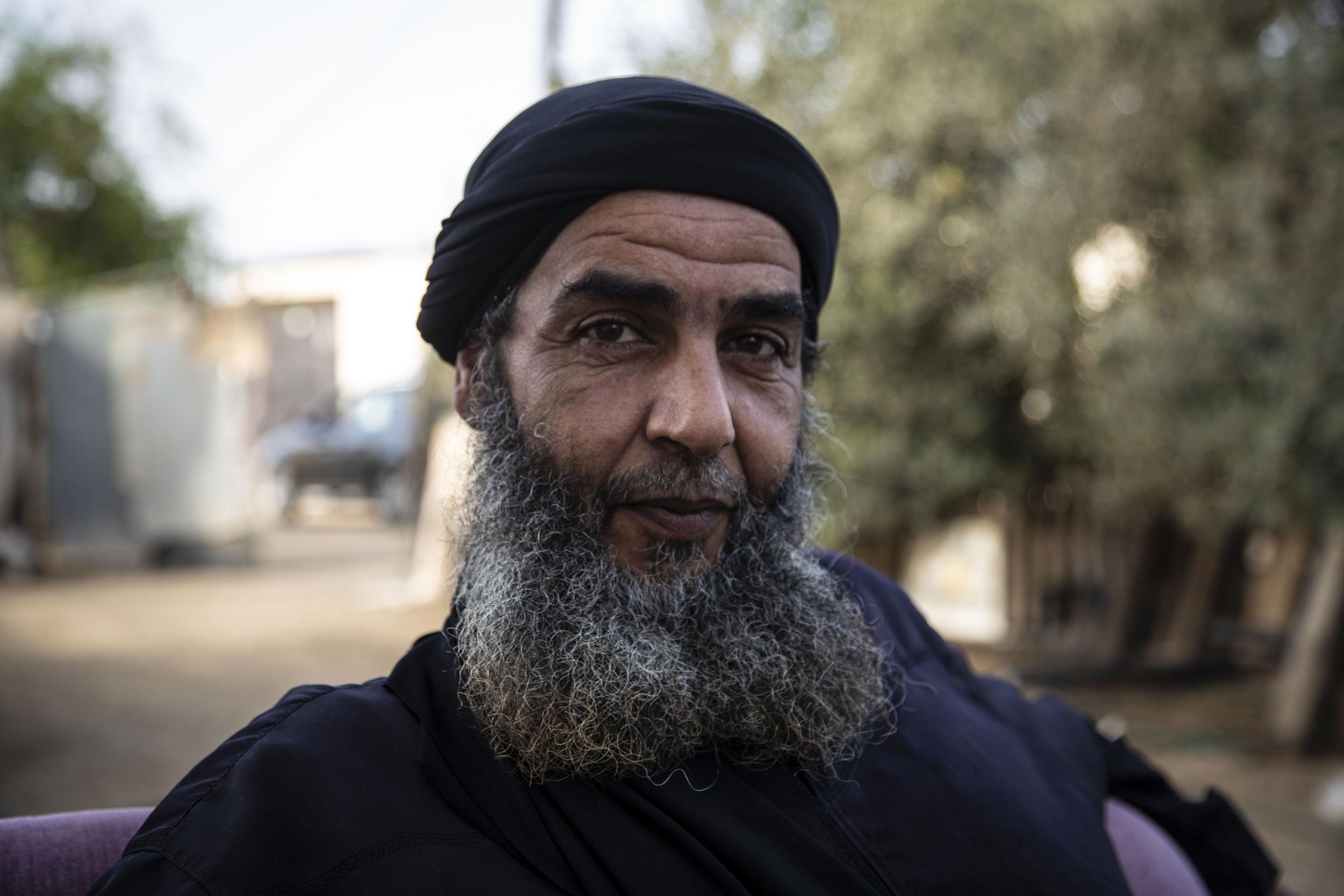
The problem lies in the chronic saltwater intrusion in Gaza’s one aquifer. According to Gaza’s coastal municipality, only 55 million cubic metres of water should be extracted every year in order for it to effectively recharge itself.
But due to a soaring population, dry winters, thousands of unlicensed wells and the difficulty of making manmade water by other means, they are pumping some 200 million cubic metres a year. Four times the safe amount.
“If we don’t fix this, the damage will be irreversible in the coming year,“ warns Munthar Shoblar, the coastal municipality’s director-general, calling the aquifer a “corpse”.
Without water, industries such as farming – which employs an estimated 40 per cent of Gaza’s workforce – will collapse, potentially doubling an unemployment rate which is among the highest in the world.
“When that happens? Honestly if the borders were freely open half the people would leave Gaza,” he adds.
Mr Shoblar says the authorities inaugurated several projects to try to relieve the aquifer and stem rampant pollution, including a large waste water treatment plant, three small desalination plants at sea, and a larger one inland that is funded in part by the European Union.
However, with just five hours of electricity available daily in Gaza, none of them can properly function.
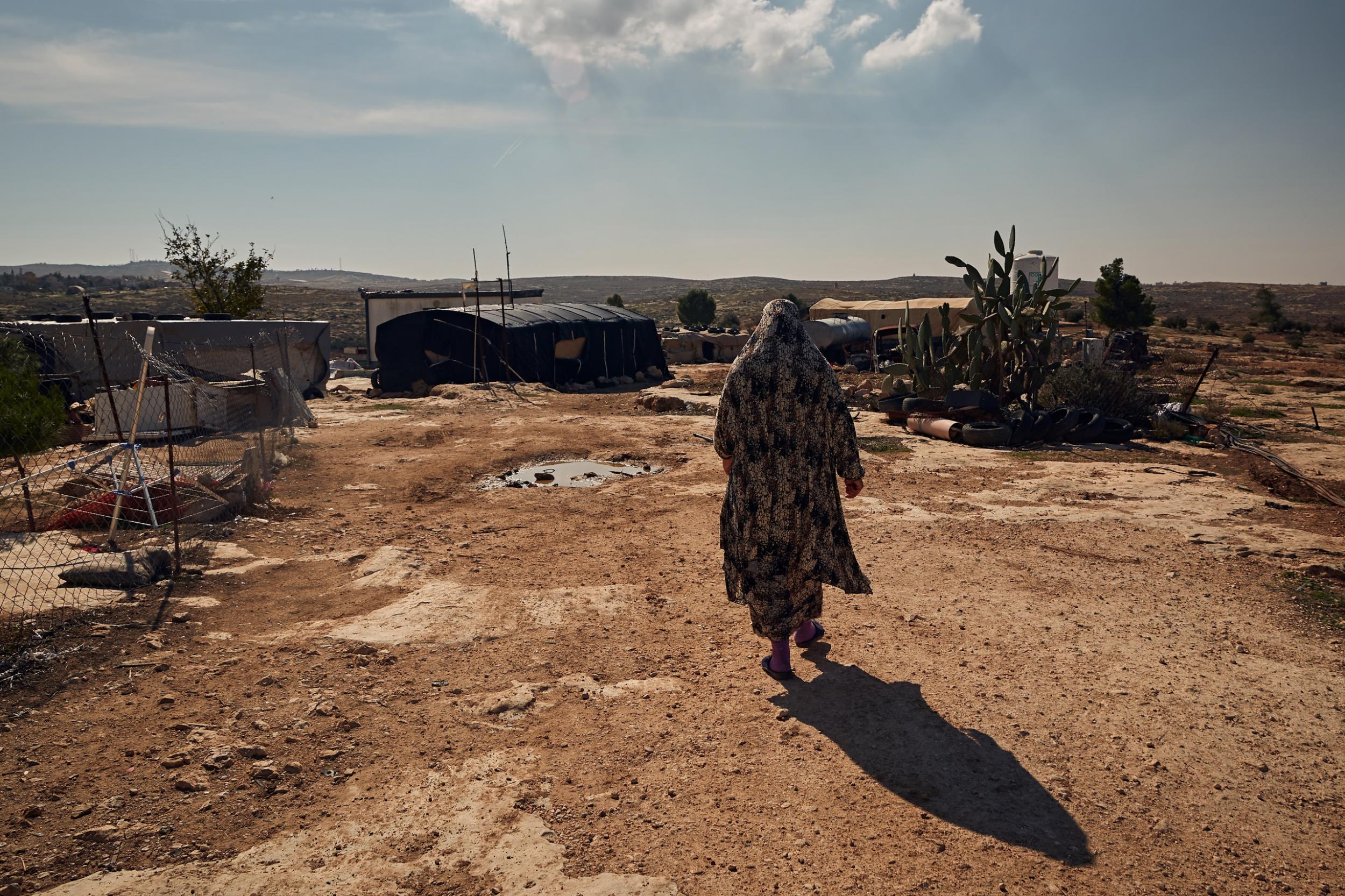
Although in recent months the hours of electricity have improved due to a multimillion-dollar injection of Qatari funding to pay for fuel, last week Palestinian officials warned that money is running out again.
Mr Shoblar says they hope a new solar panel field will plug the gap but they struggle to get the equipment needed into Gaza due to Israel’s dual-use restrictions.
The final woes are the running costs. With over half the population living under the poverty line, only 10 per cent of Gaza’s water bills are paid.
Massive bombardments in the last three wars in Gaza have also set back projects. According to the UN, the 2014 Gaza war alone caused about $30m of damage to water infrastructure.
“With the lack of billing efficiency we can’t even pay the staff – never mind spare parts, the electricity, chemicals,” Mr Shoblar says, trailing off.
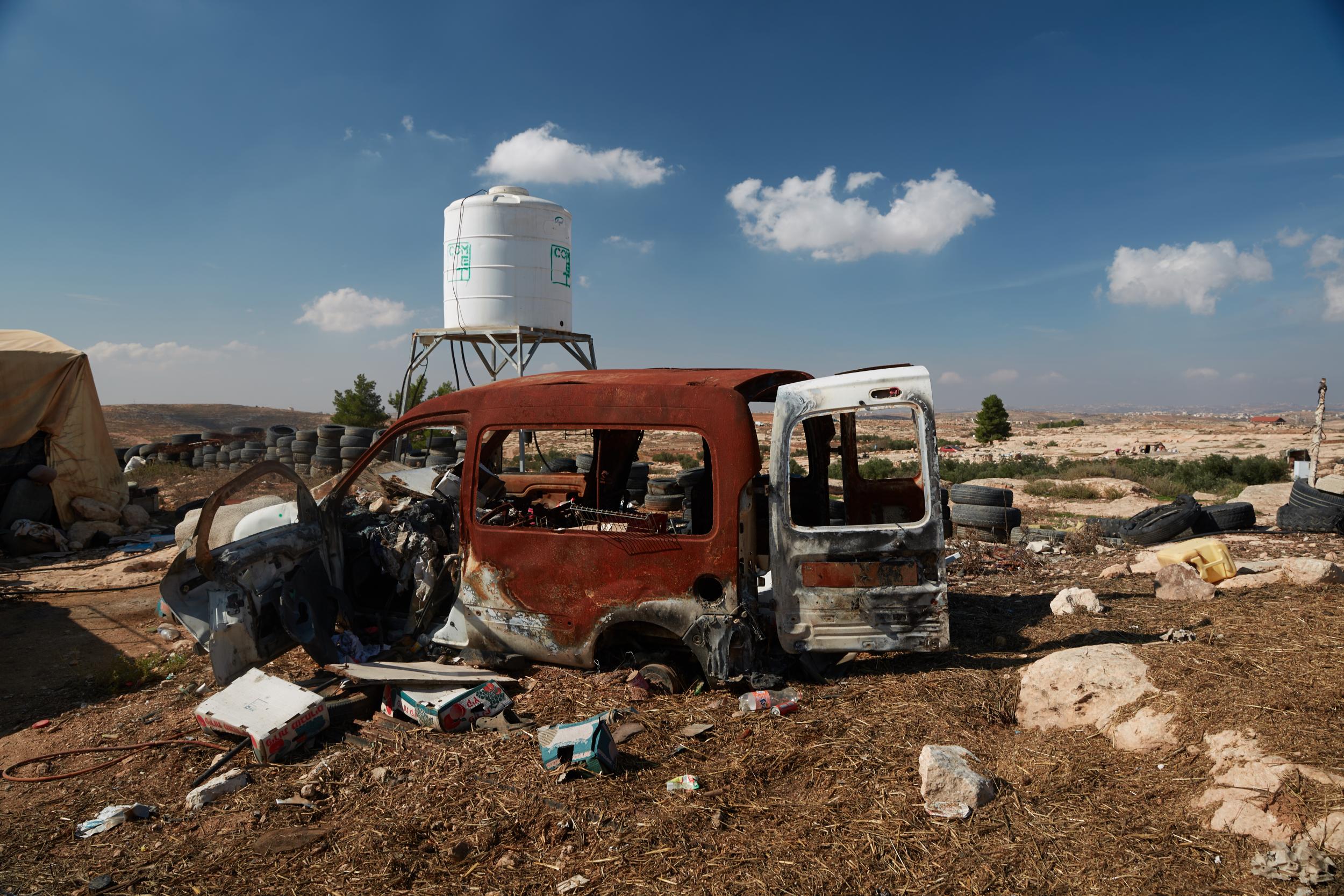
Eco Peace’s Israel director, Gidon Bromberg, warned that the increasing likelihood of pandemic disease breaking out in Gaza, not stopping at any border, should be a warning to all sides.
“Our governments are here playing Russian roulette. They are risking our broader public health, the water security of both peoples and might inadvertently create a water refugee crisis that threatens national security interests, region-wide,” he said.
Seventy miles northeast, a different nightmare is playing out in the West Bank, a territory riddled with Israeli settlements deemed illegal under international law.
Under the Oslo II agreement signed in 1995, which was only supposed to be a five-year interim plan, 80 per cent of water in the West Bank pumped from the mountain aquifer was allotted for Israeli use and the remaining 20 per cent for Palestinians.
While Israel would receive an unlimited water supply the Palestinians would be limited to a fixed quantity of approximately 190 million cubic metres from drilling, and would buy from the Israelis an additional 31 million cubic metres a year.
It is better to live buried under the sand in Gaza than out in the sun. It’s hell on earth here
But the Palestinian Water Authority told The Independent that the Palestinian population in the West Bank has nearly doubled since then, while climate change has limited the amount of rainfall, meaning the quantities were woefully out of date.
They say a third of the water supply is also lost to leakage in crumbling pipelines which cannot be properly repaired because of restrictions from the Israelis, who control 60 per cent of the West Bank.
Israeli rights group Btselem says that attempts by the Palestinians to dig new wells are often scuppered by lengthy waits or bans on drilling permits by the Israelis, meaning the Palestinians are only able to extract smaller quantities than specified in the agreement.
According to Eco Peace that means the average Israeli settler enjoys up to 300 litres per capita per day, about four times the amount of water a West Bank Palestinian does.
“For the Israelis, water is a strategic element for further expansion in the West Bank,” Ms Majdalani says.
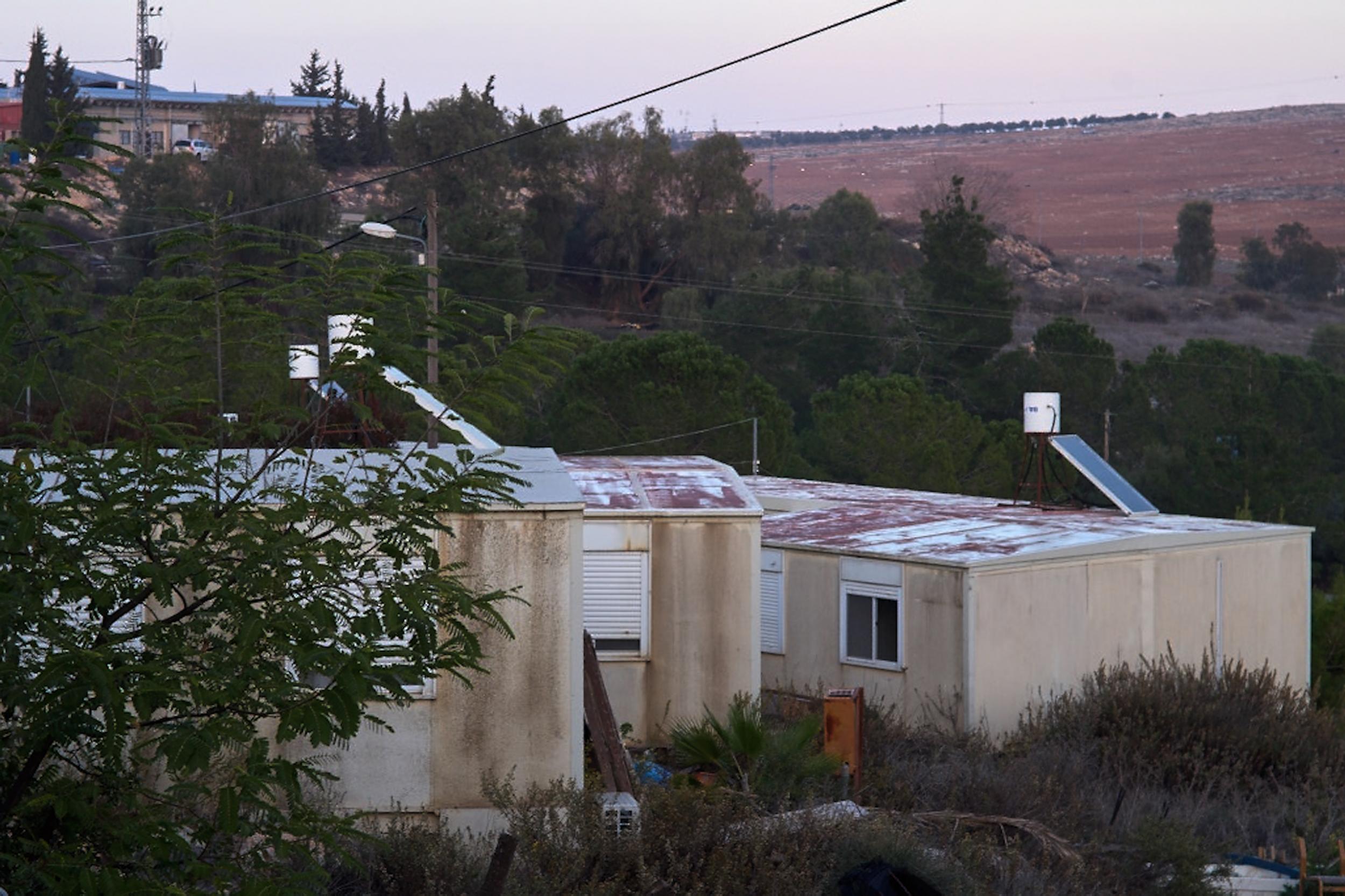
The Israeli Water Authority defended the restrictions on drilling, saying it was an essential part of protecting the shared water resources. They said the backlash from the Palestinians was political point scoring.
“If you want to ruin the aquifer you give permission to anyone to drill wells as much as you want. One should manage the water sources professionally and hydrologically,” Mr Uri, the authority’s spokesman says.
“The PA over the last few years got permission to drill a few wells and they haven’t done it yet. The complaints are mainly political,” he adds.
In 1995, water was identified as a final status issue due to its strategic scarcity. Back then, there was only natural water available and any reallocation would have resulted in less water available to Israel, particularly Israeli farmers. Therefore water reallocation was seen as part of deal making. Today however, manufactured water, desalination and treated wastewater, are readily available in Israel.
“Much due to Israel’s leadership in the water sector, Palestinians can obtain their rightful fair share of natural water, with manufactured water available at reasonable prices to replace any water loss on the Israeli side,” says Gidon Bromberg, Israeli director of the EcoPeace group.
Our governments are here playing Russian roulette
The reality on the ground is that Palestinians in the West Bank often have to purchase water at huge cost. Those bills are soaring as the summers become increasingly drier.
In Tuba, in the South Hebron hills, the village’s lands are completely surrounded by Israeli settlements that make frequent land grabs. The children of the village have to have Israeli military escorts to go to school for fear of being attacked by settlers.
“The Israeli civil administration does not allow us to dig more wells, or to connect pipelines that reach the nearby settlements, so we are stuck,” says Ahmed Jundiya, 23, whose family live in a home cut into a cave.
“Usually 1 cubic metre costs nearly 40 shekels [£8.40], but in my village as the road is so hard to get here, the cost is doubled. Now we have so little rainfall, in summer we earn no money because we spend all our earnings on water just to keep livestock alive”.
A similar story plays out a few kilometres away in Susya, where Bedouin herders are facing a mounting barrage of Israeli demolition orders for building what the Israelis deem illegal structures. Just a few metres away is a well-watered and manicured settlement – also called Susya – that is connected to the Israeli water supply.
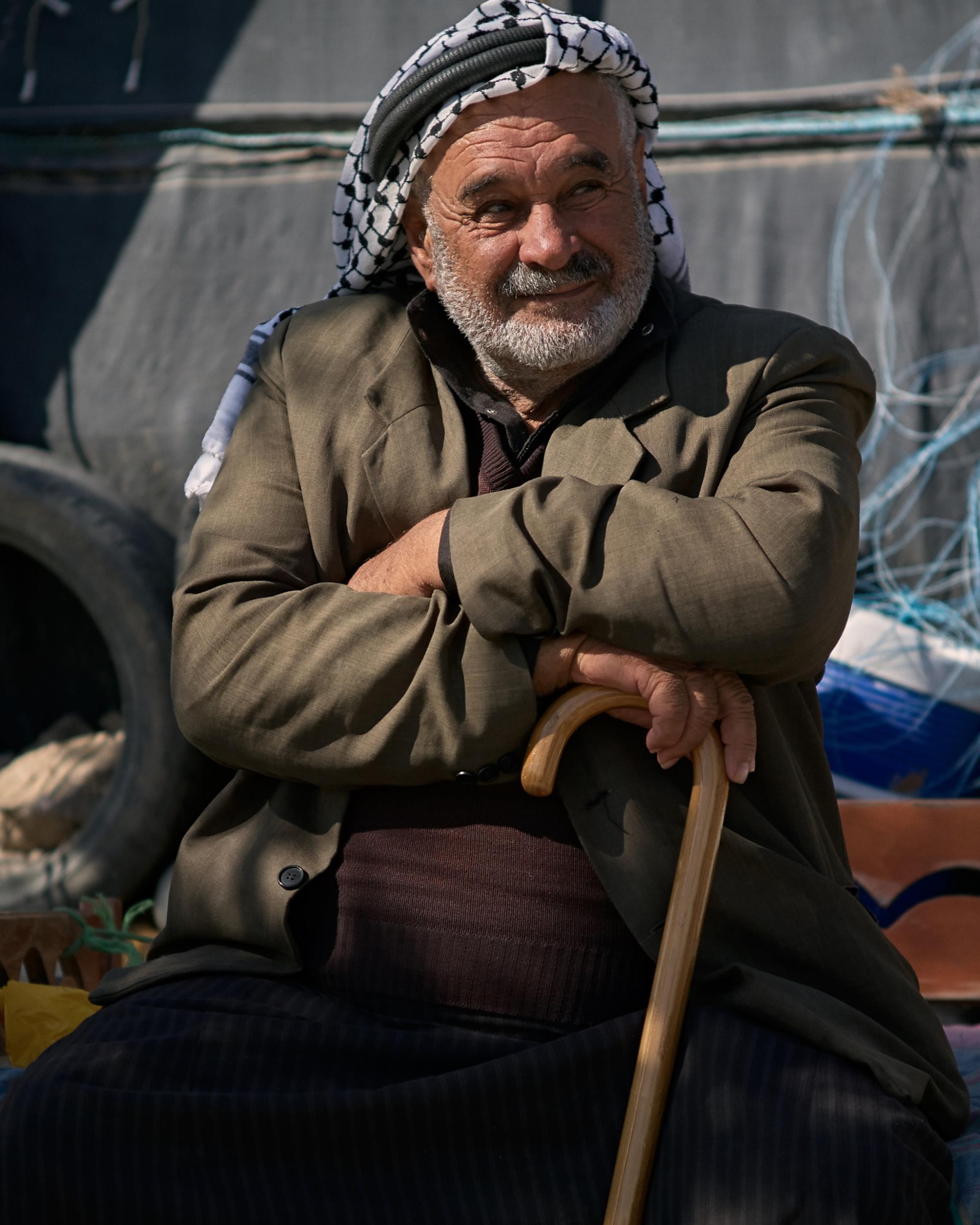
“Since the early 2000s we have been served with seven demolition orders and we are not permitted to have any fixed water structures at all,” says Abu Jihad, 70 the patriarch of the village.
“We’re in area C so we can’t dig a well, or connect to water pipes – even though they run through our land – or even fix water containers to the ground. So we buy water. We lost our last appeal against the demolition orders. Every day we see army jeeps and worry,” he added.
Inside the Israeli settlement, where each house has lush green gardens, the settler families complained to The Independent that the Bedouin villagers steal water by tapping into their water supplies. One mother told The Independent that the Palestinian villages also dump sewage, polluting the settlements.
In Gaza, Noha’s family flick through the bewildering medical reports about Mohamed’s illness and death to try to make sense of what happened.
“Mohamed’s death destroyed our family, his father broke down afterwards and now cannot work,” Mohamed’s uncle Salam says, picking up the story when his sister Noha cannot continue.
“We all knew the beaches were dangerous because of the pollution, but we didn’t realise they were open graveyards.”
Read the first four parts of the Water Wars series, Boiling Basra, Iraq’s disappearing Eden, Drought drove people into the arms of Isis and How a water crisis in Jordan could threaten Middle East peace
Join our commenting forum
Join thought-provoking conversations, follow other Independent readers and see their replies
Comments